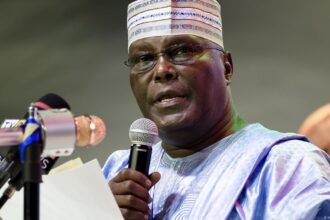THE Republic of Korea in collaboration with the Nigerian government is constructing a Model School in Abuja worth15 million dollars as part of efforts to improve access to quality basic education in Nigeria.
Executive Secretary , Universal Basic Education Commission(UBEC), Dr Hamid Bobboyi, made this known on Monday in Abuja at a 10-day training workshop for over 72 teachers and school administrators.
He said the training which was the second of its kind was one of the positive outcomes of the existing bilateral relationship between Nigerian and South Korea.
Recent reports indicated that Nigeria is home to over 10.5 million out-of-school children with larger population of these children roaming the streets coming from the northern part of the country.
Bobboyi who was represented by Dr Yakubu Gambo, Deputy Executive Secretary (Services), UBEC, said ‘’Over the last eight years the government of South Korea has been assisting the development of infrastructure in the Nigerian basic education sub-sector by constructing additional classrooms and provisions of furniture through its embassy and KOICA.’’
He said that the commission’s programmes for teacher professional development and training had not only added a new dimension to improving teacher quality but was effectively addressing teacher shortages and poor classroom interactions.
The workshop organised for teachers of the proposed Nigerian-Korean Model School Abuja by the Korean International Cooperation Agency (KOICA).
KOICA is a government agency of the Republic of Korea responsible for the grants and technical programs for development partners and it opened in Nigeria in 2008 at the Embassy of the Republic of Korea.
The Country Director, KOICA, Mrs Sook Hyun Park, in her opening remarks said that the workshop was part of the collaboration between the Nigerian and Korean government to improve the training and development of teacher quality.
She said: “All these efforts are aimed at improving the training and development of teacher’s quality for a school that has the potential of becoming a model educational institution in the FCT. Also by transferring know-how and experience from the Republic of Korea.
Park said the KOICA hoped that the model school became a place where talented children in Nigeria could unfold their dreams without limitations.
“The place where less privileged children who cannot afford bus and school uniforms to be able to meet the world through it rooms and high quality of learning material.
“A place that nurtures future Chinua Achebe, Aliko Dnagote, Bennet Omalu, Wole Soyinka regardless of their backgrounds.’’
The Minister of the FCT, Mallam Muhammad Bello, in his keynote address expressed appreciation to the Korean government and its people for the maximum educational collaboration with the FCT.
He said: “I wish to state that the level of commitment shown by KOICA and the educational secretariat is commendable.
“This project will turn out to become a great legacy to not only international cooperation but to education as well.
“We cannot emphasis enough the importance of training and retraining of teachers and administrators in our schools.
“This is due to the dynamic nature of knowledge and the need to keep abreast with the newer methods of imparting knowledge.”
The Minister, who was represented by the Dr Adamu Noma, Director, UBEC Board, FCT, said the FCT had some education challenges which included infrastructure and facilities.
These challenges are orchestrated by funding and the influx of people in the city but they are not excuses for poor performances in our examination.’’
He urged the education administrators to think out of the box to overcome everyday challenges in their schools.
Bello also urged teachers to put in their best in discharging their duties and reminded them of their responsibility to the society saying no society can rise above the level of its teachers.
Please regard your jobs as more than a profession but a calling to higher service in the society.’’
He assured the teachers that the FCT administration would try to meet the needs of teachers so they could discharge their duties effectively.








